Gut Health IN Shelby Township MI

Bridging the Nutritional Gap: The Role of Supplements When Struggling with Food Intake
Maintaining a balanced diet rich in essential nutrients is a cornerstone of good health in Shelby Township MI. However, for many people, dietary restrictions, allergies, medical conditions, or even personal preferences can make it challenging to consume certain foods. When these obstacles prevent you from getting the necessary nutrients from your diet, supplements can play a critical role in filling the gap until the underlying issues are resolved. This article explores the importance of supplements in such situations and offers guidance on how to use them effectively.
The Importance of Essential Nutrients in Shelby Township MI
Essential nutrients are vital for numerous bodily functions, including energy production, immune support, bone health, and cognitive function. Deficiencies in these nutrients can lead to a range of health problems, from minor symptoms like fatigue and dry skin to serious conditions such as anemia, osteoporosis, and impaired immune function.
Some of the key nutrients that people often struggle to get enough of include:
- Vitamins: Such as Vitamin D, B12, and C.
- Minerals: Including iron, calcium, and magnesium.
- Omega-3 Fatty Acids: Crucial for heart and brain health.
- Protein: Essential for muscle repair and growth.
Common Challenges with Food Intake
Several factors can make it difficult to obtain these nutrients from food alone:
- Dietary Restrictions: Vegetarian, vegan, and other restrictive diets can limit sources of certain nutrients like Vitamin B12, iron, and omega-3 fatty acids.
- Food Allergies and Intolerances: Allergies to nuts, dairy, gluten, and other foods can restrict access to important nutrients.
- Medical Conditions: Conditions such as Crohn's disease, celiac disease, and lactose intolerance can impair nutrient absorption.
- Eating Disorders: Anorexia, bulimia, and other eating disorders often result in severe nutrient deficiencies.
- Age-related Changes: Aging can affect appetite and nutrient absorption, making it harder to meet nutritional needs through diet alone.
The Role of Supplements
When dietary intake falls short, supplements can provide a necessary bridge to ensure that your body gets the nutrients it needs. Here are some common supplements and the nutrients they provide:
- Multivitamins: These are a convenient way to cover basic nutritional needs and fill minor gaps in your diet.
- Vitamin D: Especially important in regions with limited sunlight exposure, Vitamin D supplements support bone health and immune function.
- Vitamin B12: Essential for nerve function and the production of DNA and red blood cells, B12 supplements are particularly important for those on plant-based diets.
- Iron: Critical for oxygen transport in the blood, iron supplements can prevent or treat anemia, especially in women with heavy menstrual cycles or individuals with chronic illnesses.
- Calcium: Important for bone health, calcium supplements can help those who are lactose intolerant or do not consume dairy products.
- Omega-3 Fatty Acids: Fish oil or flaxseed oil supplements provide EPA and DHA, which support heart and brain health.
- Protein Powders: Whey, soy, and plant-based protein powders can help meet protein needs, especially for athletes or those recovering from illness.
Using Supplements Safely and Effectively
While supplements can be beneficial, they should be used thoughtfully and safely. Here are some tips for incorporating supplements into your routine:
- Consult a Healthcare Provider: Before starting any supplement, talk to your doctor or a registered dietitian to ensure it's appropriate for your needs and to avoid potential interactions with medications.
- Follow Dosage Recommendations: Stick to the recommended dosages to avoid toxicity or adverse effects. More isn't always better when it comes to supplements.
- Choose Quality Products: Look for supplements that are third-party tested for purity and potency. Reputable brands often have certifications from organizations like NSF International or USP.
- Monitor Your Health: Keep track of any changes in your health and report them to your healthcare provider. Regular blood tests can help monitor nutrient levels and adjust supplementation as needed.
- Aim for a Balanced Diet: Use supplements as a temporary measure while working towards a diet that naturally provides all essential nutrients. Whole foods offer a complex matrix of nutrients, fiber, and phytochemicals that supplements can't fully replicate.
Conclusion
Supplements can be a valuable tool in managing nutrient deficiencies when dietary intake is insufficient due to various challenges. They provide a practical solution to bridge nutritional gaps and support overall health until a balanced diet can be achieved. By consulting healthcare professionals and choosing high-quality products, you can effectively use supplements to maintain optimal health and well-being while addressing the underlying issues that impact your food intake.
OFFICE HOURS
Appointments Only, No Walk-Ins
Monday
9:00am - 12:00pm
2:00pm - 6:00pm
Tuesday
*9:00am - 12:00pm*
2:00pm - 7:00pm
Wednesday
9:00am - 12:00pm
2:00pm - 6:00pm
Thursday
*9:00am - 12:00pm*
Friday
9:00am - 12:00pm
2:00pm - 6:00pm
Saturday
9:00am - 12:00pm
Sunday
Closed
*Dr. Nick Hartop's Hours*
Diegel Chiropractic
49780 Van Dyke Ave
Shelby Twp, MI 48317
P: (586) 254-2060
F: (586) 254-2948


